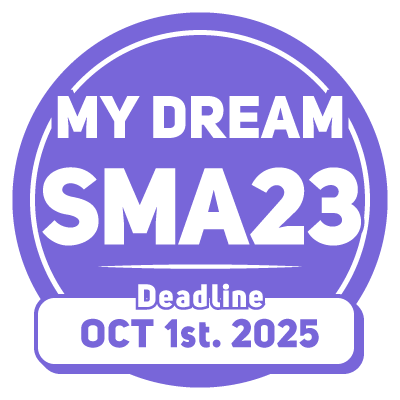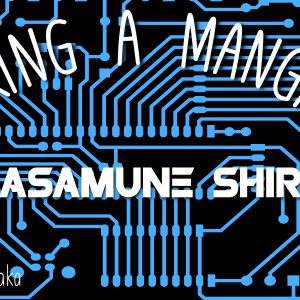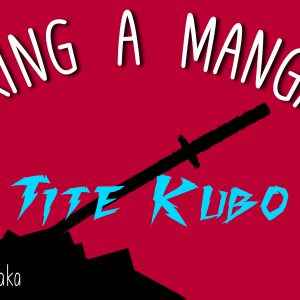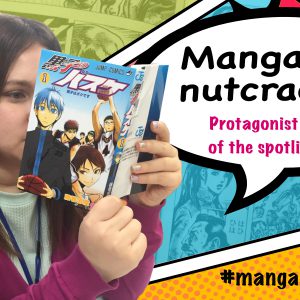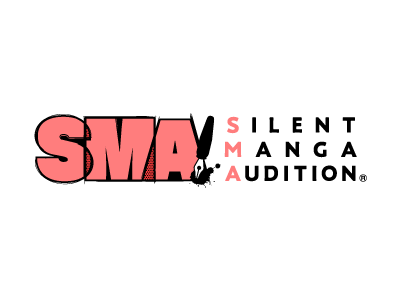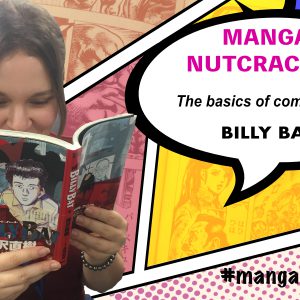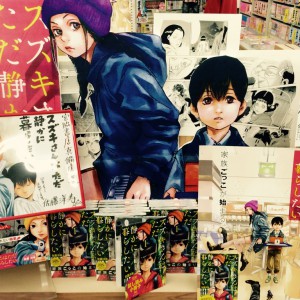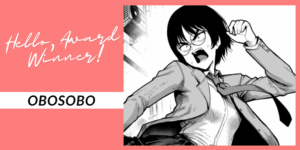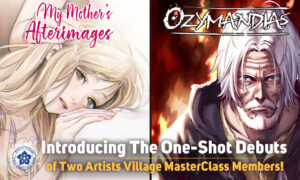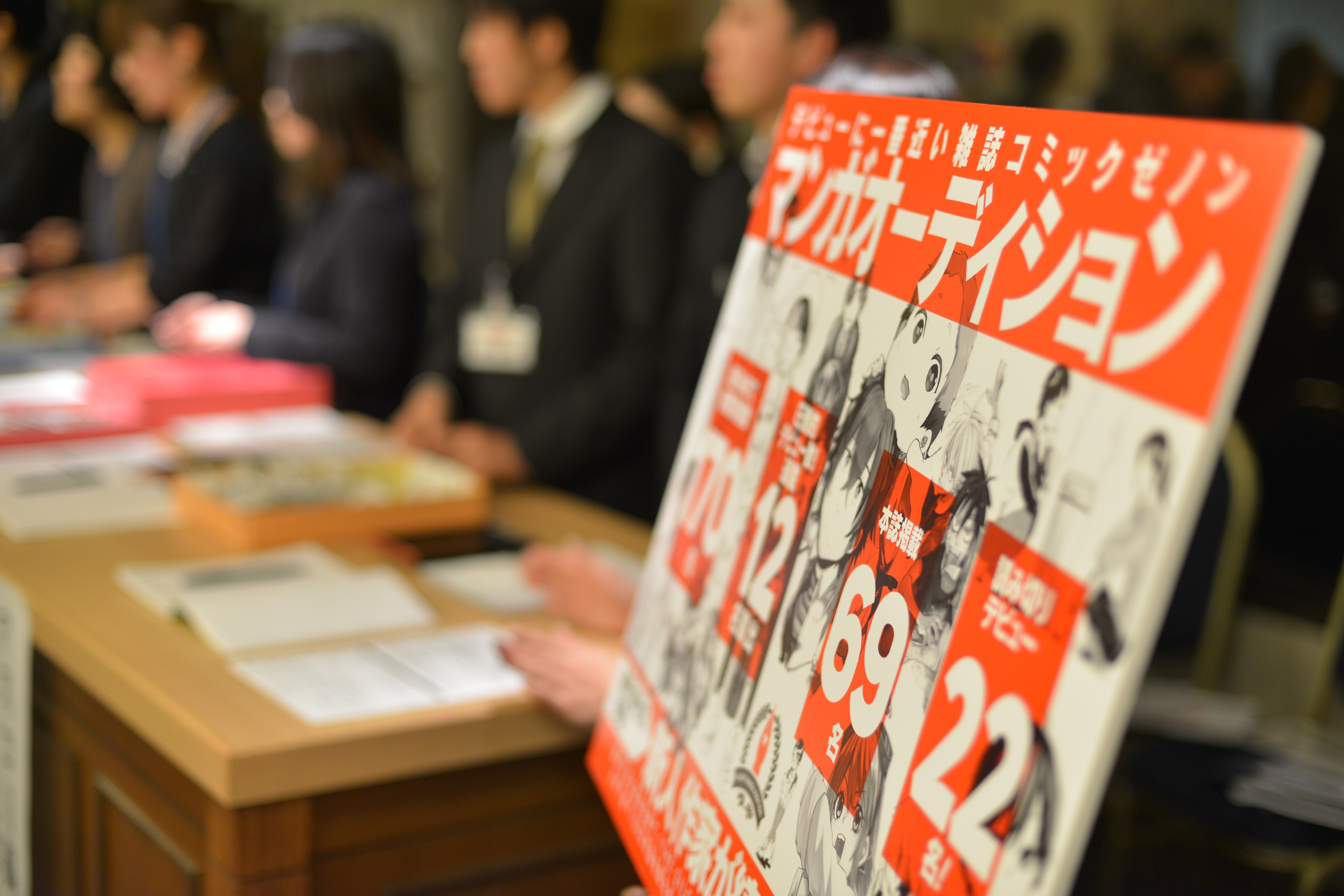
Hi everyone!
On today’s Manga Insider, continuing from the previous episode, we’re going to be covering the topic of “how to meet an editor”!
This time, we’re specifically going to be looking at “entering a manga award”.
I’m sure that many of you have experience taking part in SILENT MANGA AUDITION®, but how exactly does one go about entering a manga award?
Mr. Akiyama (from the ZENON Editorial Team) will be giving us the explanations!How the manga award goes:
1. Get a clear understanding of the manga award that you want to enter.
We tend to lump them all together as “manga awards”, but there are various awards held by various magazine companies, and they’re all a little different. Before you choose, you should consider which magazine would be most appropriate for your manga, and what the conditions of the award are. You may notice that, in the case of a magazine with multiple awards, the awards often have different ranks based on the requirements. For example, Comic ZENON has three kinds: the Comic ZENON Manga Taishou (The Grand Prize), the Manga Audition, and the Ichigeitoppa (One-Art Breakthrough) Manga Award. Among these, the Grand Prize is the highest rank, and is judged on the artist’s overall manga drawing abilities. Pros who are currently drawing for Comic ZENON are sometimes invited to judge, and those who win are considered to be very close to debuting. As it’s a very large scale award, it’s only held every 6 months.
In this round, Michihiko Toei sensei is invited as the judge. He is currently drawing the manga ‘Concierge Imperial’ for Comic ZENON!

The system is very similar to the SILENT MANGA AUDITION, but a big difference is that the Manga Audition has more specific themes, such as “A moment bursting with smiles”, “A moment full of tears”, etc.

The judging is ongoing at this moment! I’m feeling so excited to see the results!
So, if you want to become a manga artists at Comic ZENON, you may now realize that the ideal would be to first polish your skills through the Manga Audition and One-Art Breakthrough Awards, and once you feel ready, attempt to win the Grand Prize!
2. Send your manga before the deadline!Draw up a realistic schedule, and work at a pace that allows you to finish your manga in time for the deadline! As I mentioned in the previous article, being able to complete your work within the allotted time period is the absolute minimum requirement to be a professional manga artist.
3. The judging, and the aftermath
The judging works differently depending on the award. I’m going to use the ZENON Awards as an example to explain:
In the case of the Grand Prize, first the editorial team selects the best works. These are then given scores by bookstore staff, readers, and the judges (professional manga artist). The winners get their manga published in an issue of Comic ZENON two months after the deadline, and the artists whose works made it to the final round are assigned editors.
On the other hand, in the case of Manga Audition, only the editorial team assigns points, and the winners are announced in the following issue of Comic ZENON. Those artists are also assigned editors.

The winner’s manga is published along with the artist’s interview.
The advantages and disadvantages of Manga Awards:

The winners of the Grand Prize and the Manga Audition, at the new years ceremony of Comic ZENON.
How to succeed through a manga award:

The winners of the domestic award, at the new years ceremony.
At the end of the day, people who win manga awards are the people who put their heart and soul into drawing their manga. Of course, all artists try their best, but the desire to show the readers a story that you love must be very strong. The readers can sense these feelings when they read your work.
Also, rather than worrying about how you can score points with the judges, you should think about “What can I draw that will make people happy? What can I do?” A manga’s selling point is based on the artist’s individuality. The fans read manga because they want to see that individuality. Most serials are built on emphasizing the author’s strong point.
This may sound a little vague, but the gist of it is “draw what you like” and “improve your strong point”. For example, if you like drawing pictures of children, focus on making your pictures of children as cute as possible. Don’t try to get a 75% for each element, try to get 120% for a single element. When it comes to entertainment, you can’t always make something a hit just by removing all the bad parts. Rather, you have to make the good parts stand out.
These are words of wisdom from a man who has been involved in the creation of a lot of hit manga… take a moment to soak them up!
Over these two episodes, I’ve introduced to you how you go about finding an editor. I hope that this information will prove useful. Finally, Mr. Akiyama has a few words to say about mochikomi and manga awards from the editor’s point of view.
Editors take mochikomi and manga awards very seriously. We aren’t just thinking about the manga artist’s drawing ability, we’re also thinking about things like the artist’s personality or how we can get along with them, to create a good relationship as a life-long business partner. Editors are responsible for the artists life, which means we can’t just let the artist debut before they are ready. We’re always doing our best to take the artist as far as they can possibly go.

Hojo sensei, Tsugihara sensei, Hara sensei, and Horie-san celebrating the winners of the domestic manga awards.
On the next episode of Manga Insider, I’ll be introducing “manga planning”! Where do you begin? And how does it end? Please look forward to it! Do you have a good idea for a manga award? What kind of award would you love to enter? Please leave your comments below! ZENON and SMAC! might take you up on your ideas! [catlist name=”MANGA INSIDER MAYU” thumbnail=”yes” thumbnail_size=160 content=”no” date=”yes” dateformat=”M j, Y G:i” template=page_list]
